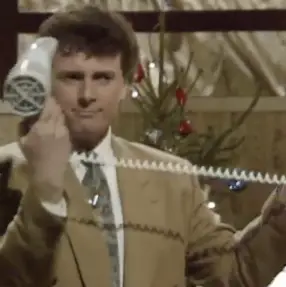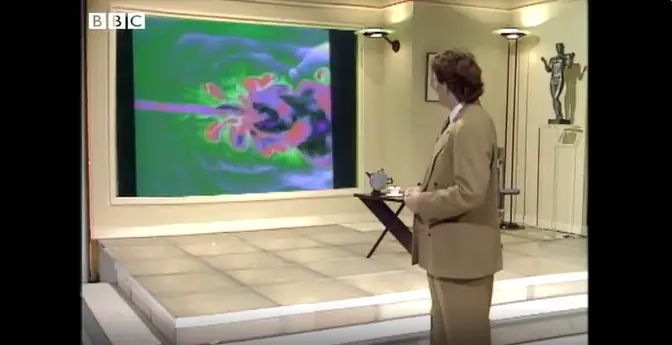
It's always fun looking back at what we thought the future would be like in years gone by - and a video posted to Reddit this week has demonstrated that in perfect style.
It's a clip from a BBC programme called Tomorrow's World, filmed in 1989 and enlisting some industry experts to make their best guesses about what technology would be ubiquitous in a few decade's time.
Their guesses about what 2020 would look like are actually fairly impressive in many cases.
In particular, the programme argued that we'd all be living in smart homes, with hidden technology that cuts down on clutter to instead rely on built-in tech.
Advert
A sequence where they showed how lights could come on or off automatically, or learn your favourite brightness, all controlled by your voice or gestures, is pretty close to what can now be managed with lighting systems like Philips Hue.
Similarly, asking with your voice to hear music from a certain artist or composer, as one host does, is completely possible using smart speakers and a multiroom setup from the likes of Sonos so that you have sound in every room.
One lengthy section shows how polarised glass could be used for privacy screens whenever you want to keep private, while remaining transparent in other uses, something that hasn't become widespread by any means.
Indeed, the predictions about how windows could alternate between being transparent, opaque or even used as screens are pretty bold, and remain a little far-fetched. That said, the very first transparent TVs have started to hit the market in recent months, so perhaps this could eventually happen.

A brief prediction that stands out as the most incorrect of them all, though, sees the host briefly show how powered walls could be used to let you power appliances from anywhere on the wall with a sort of power-patch attachment instead of a plug.
This obviously hasn't come to pass, or anything like it, and seems like a pretty mad idea, with commenters on the Reddit post ripping it to shreds: "Electrocution, don't like it", one person wrote.
The closing segment is another pretty accurate one, talking about how burning fossil fuels will have become stigmatised by 2020 (although how much you think that's come true might be a matter of perspective).
Thus, it predicts that energy management will be important, something that is true given how many appliances now boast about efficiency and power draw in their advertisements.
A heating system that can heat individual rooms and learn your routines, meanwhile, is practically pedestrian these days, even if you haven't built a fully smart home.
So, it's an amusing enough watch, but in many ways, the experts enlisted by the BBC in 1989 did a pretty phenomenal job with their predictions - powered walls aside.
